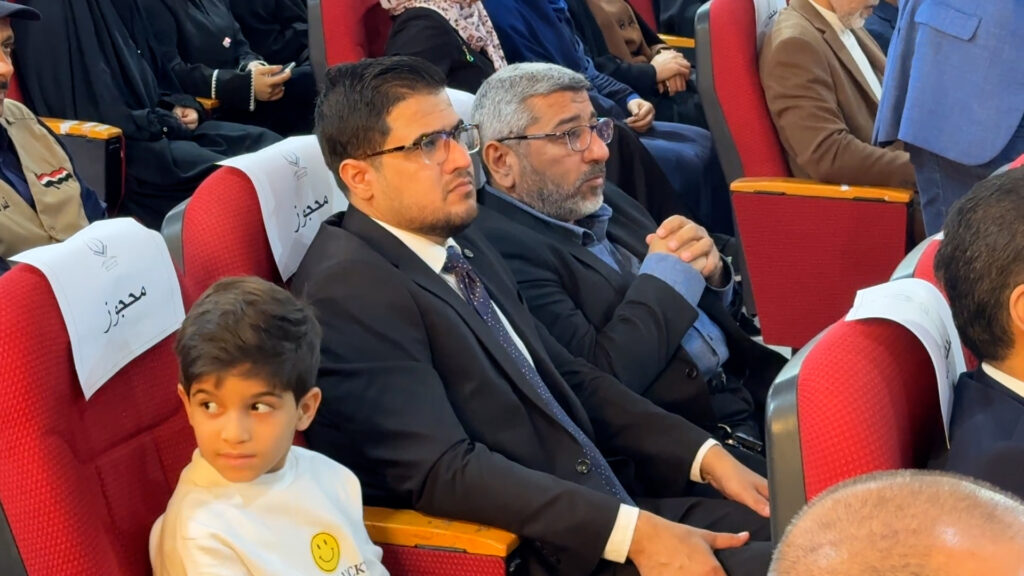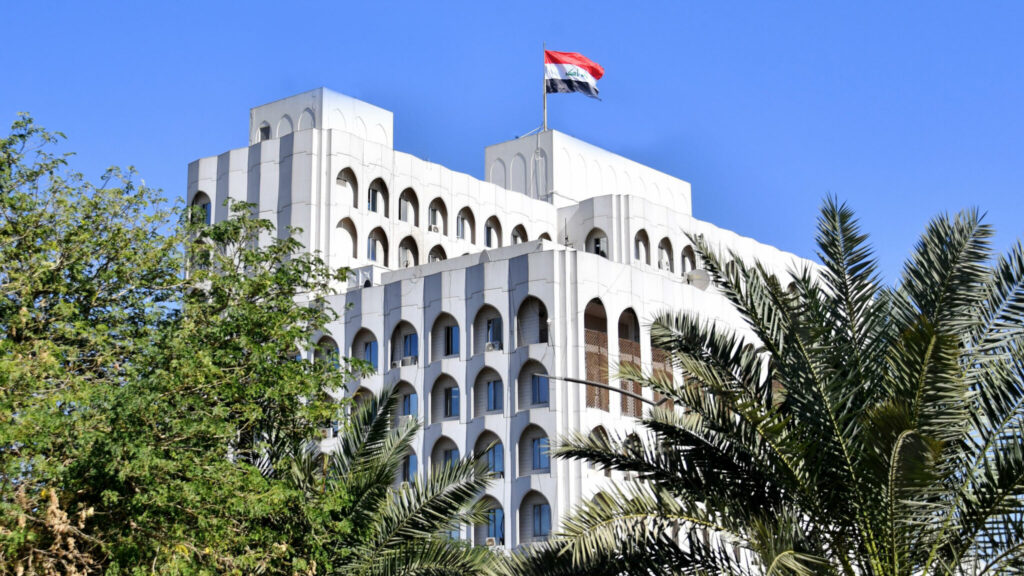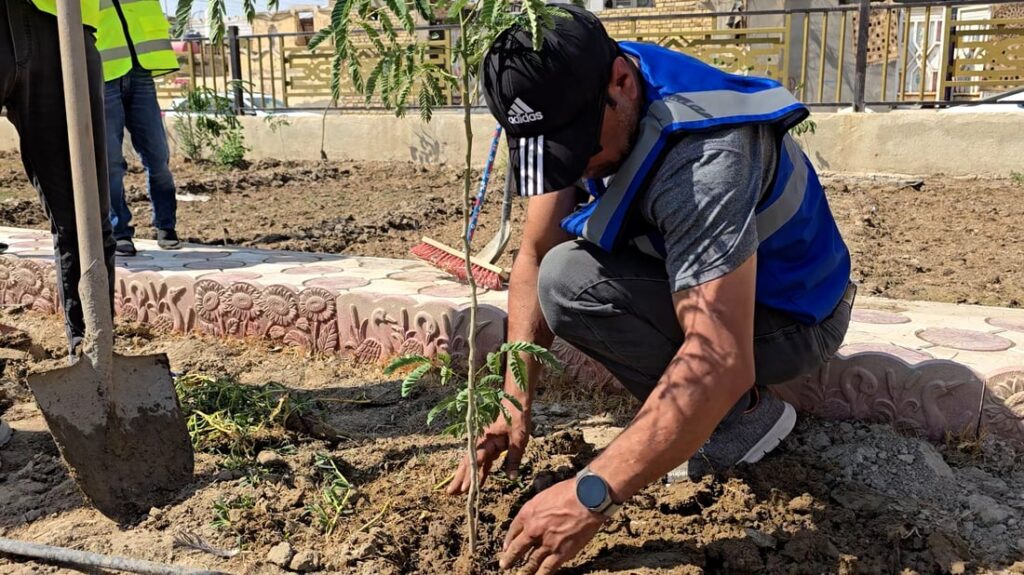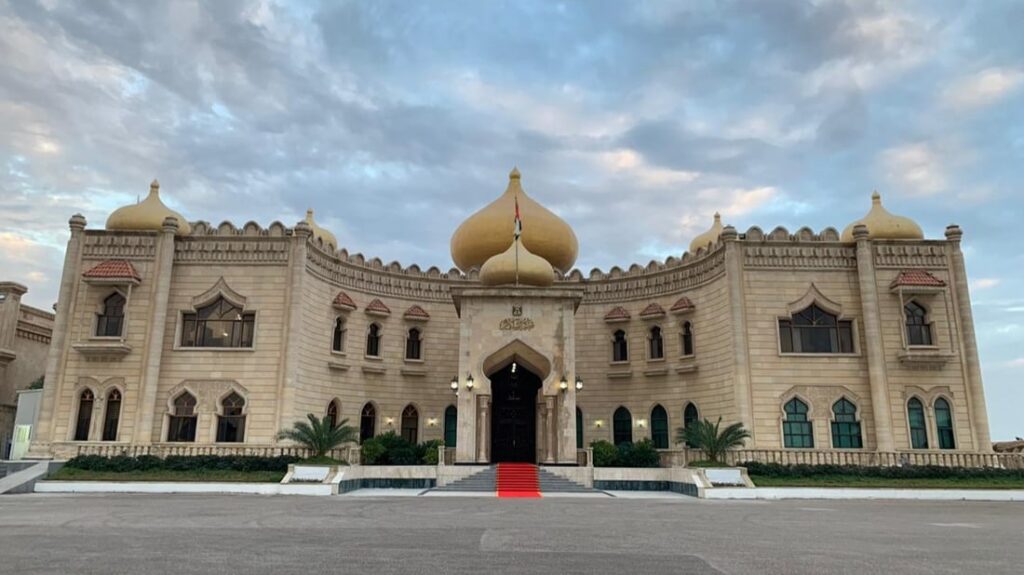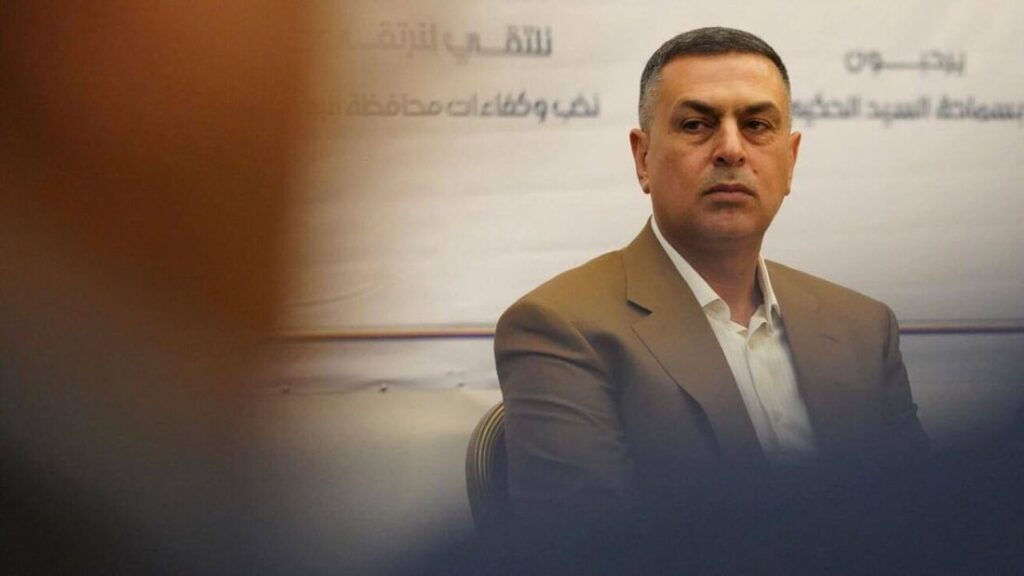World: The Grand Bargain in Practice: Dutch Relief Alliance boosts support for local and national responders

Striving to implement their Grand Bargain commitment to provide more support and funding tools for local and national responders, the Dutch Relief Alliance members assisted local organizations in directly accessing funding for their programmes, and strengthening capacity in DR Congo, Iraq, Nigeria, Somalia and Sudan.
In 2016, the Grand Bargain Signatories committed to making principled humanitarian action as local as possible. According to the 2019 Annual Independent Report, the Grand Bargain established localization as a key normative principle of humanitarian action.
Read a few examples of localization efforts by the Dutch Relief Alliance (DRA) below.
23,5% of funding goes to local partners
National and local organizations ? often being the first to respond to crises ? need direct funding to be able to respond and assist affected people, and to remain in the communities they serve before, after, and during emergencies.
“Many local NGOs, in the north and in the south, are eager and capable to take the lead in humanitarian responses. And to manage direct international funding for this. In fact, some of them, like Candlelight, run larger operations and have better outreach than many of the INGOs. Localization is not only about transferring responsibilities and direct funding, also about acknowledging that most of the work, also of the DRA, is already carried out by local actors,” said Lisa Scharinger, Somalia Joint Response Field Coordinator
The DRA will soon reach the benchmark of ensuring that 25% of funding received from the Dutch government is allocated as directly as possible to national response, a goal set by the Grand Bargain Signatories at its inception. In 2018, 23,5% of DRA funding went to local partners, and 25,7% was planned for 2019. Some contexts are going above and beyond the target ? in Nigeria, an average of 34% of funding goes to local partners. Moreover, two local partners in Nigeria were supported to be able to access the Nigeria Humanitarian Fund directly. Funding to local partners in DRA is done with minimized transaction costs and as directly as possible, whilst maintaining quality, strong risk management structures and accountability mechanisms.
“We invested around €55.000 in a mentorship scheme. A pool of Nigerian and international experts team up 2 to 4 months with our Nigerian humanitarian partners, increasing capacities in either HR, finance, accounting, supply chain management or other organizational skills, depending on our partners’ needs and demands. This is new in the Nigerian humanitarian community.”
“Of the 6 communities of practice of the Nigeria Joint Response (NJR), 4 are led by Nigerian NGOs. And recently, one local partner has joined the ranks of the NJR as 6th DRA partner, next to the 5 existing Dutch humanitarian agencies.”
“Besides the fact that 34% of the NJR budget goes directly to local partners, the examples above show how the DRA equips Nigerian civil society actors to take more control over humanitarian responses in their country," said Atif Sohail, Nigeria Joint Response Field Coordinator, Save the Children
Capacity strengthening adapted to each local partner’s office
Although DRA spent 1,5% of the budget in 2018 for joint capacity strengthening of local partners, they plan to increase the number to around 5% to 8% by 2021 to move forward with the Grand Bargain commitments.
“To operate effectively in a fragile security context, local partners need to be able to organize their own security. Yet, even though they are the frontline responders, they severely lack the kind of safety and security protocols, coordination mechanisms, dedicated security staff and technical equipment INGOs have at their disposal. NJR’s capacity building fund – which our Nigerian partners could use unconditionally – was used to partly fill that gap. By purchasing satellite phones and generators, they seriously increased the connectivity and security of teams operating in deep field locations.” - Atif Sohail, Nigeria Joint Response Field Coordinator
Strengthening technical capacity has already yielded results for principled humanitarian action, according to DRA. For example, the quality of interventions of local actors in Somalia was improved as a result of trainings on water testing, solar pumping and support to local partner engineers.
However, moving forward from technical capacity, more investment and time will be needed for institutional strengthening of local partners. For example, in Nigeria DRA local partners are provided capacity strengthening support in human resources, finance, and procurement. A local DRA partner there is launching a long-term mentorship scheme to help local NGOs identify gaps in their organizations and strengthen capacities in those areas. A mentoring approach was undertaken in Iraq and Sudan as well, by seconding consultants and specialists in local partners’ offices for a limited time, which enabled trust-building and adapting support to specific contexts of each local partners. In Democratic Republic Congo, local partners were provided with joint trainings on grant acquisition.
“For the first time local and international experts and aid workers with different backgrounds – in shelter, WASH, livelihood, food assistance, protection mainstreaming - exchanged insights and learnings. This quickly improved the overall response. It increased beneficiary inclusion in different project stages. It became clear, for example, that feedback and complaint mechanisms did not take into account high illiteracy rates among the crisis affected populations. Together, we adapted them and trained first responders in all the Joint Response activities.”
“In the end locals and internationals get a truer picture of each other’s strengths and weaknesses, and are better able to strengthen one another.” Abdur Rauf, Afghanistan Joint Response Field Coordinator
Disclaimer: Information in this article was provided to the Grand Bargain Secretariat by the Dutch Relief Alliance.
BACKGROUND
Dutch Relief Alliance is a coalition of 16 Dutch aid organisations in partnership with the Netherlands Ministry of Foreign Affairs. Dutch Relief Alliance members collaborate in humanitarian interventions – delivering greater impact than members operating independently. Several of the Dutch Relief Alliance members are Signatories to the Grand Bargain. Read more here.
For information on the Grand Bargain workstream 2 (More support and funding tools to national and local responders) activities and initiatives, click here.

